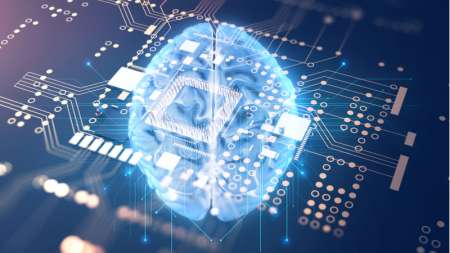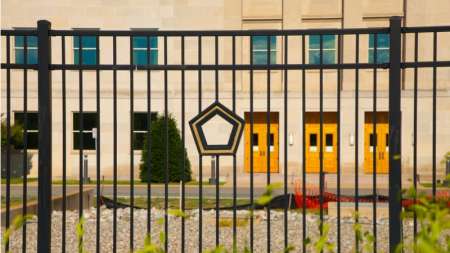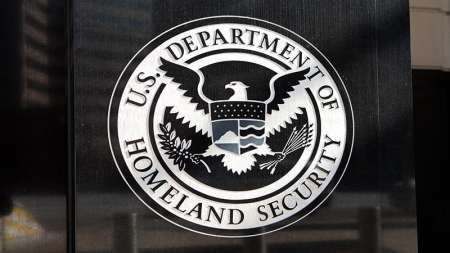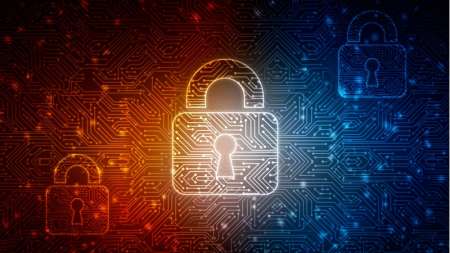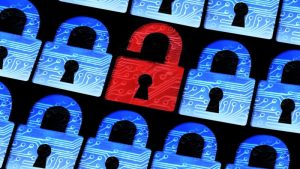Artificial Intelligence and how it may impact employees is front-of-mind when it comes to workforce issues, but having “organizational depth” can help ease the transition of implementing AI in a rational and beneficial way. […]
The House Oversight and Reform Committee advanced the Internet of Things (IoT) Cybersecurity Improvement Act of 2019 out of Committee on June 12. The bipartisan legislation, cosponsored by Reps. Robin Kelly, D-Ill., and Will Hurd, R-Texas, would establish Federal baseline standards for all government-purchased Internet-connected devices. […]
The Defense Department (DoD) Office of Under Secretary Acquisition of Sustainment is creating a new certification model to streamline DoD’s cybersecurity acquisition processes, Special Assistant to DoD’s Assistant Secretary of Defense Acquisition for Cyber Katie Arrington said at the Professional Services Council Federal Acquisition Conference today. […]
On Wednesday, the House Armed Services Committee held a full markup hearing on the National Defense Authorization Act for Fiscal Year 2020 and voted to approve amendments to include a Department of Defense strategy to leverage artificial intelligence supported robotics, extend dual-use technology programs, and increase recruitment of science and engineering professionals to the Joint Artificial Intelligence Center (JAIC). […]
The Justice Department’s Bureau of Alcohol, Tobacco, Firearms, and Explosives (ATF) decided to migrate its antiquated legacy IT to the cloud after realizing that it’s old IT was driving the ATF into technical debt and that it lacked disaster recovery (DR). […]
Today, Reps. Jim Himes, D-Conn., and John Ratcliffe, R-Texas introduced new legislation that would establish election interference as a Federal crime. The bipartisan bill, dubbed the Defending the Integrity of Voting Systems Act, would make it a Federal crime to hack a voting system used in a Federal election. […]
New research suggests that over the past five years, 33 percent of cybersecurity data breaches could have been prevented with Domain Name System (DNS) firewalls. […]
The latest survey by Unisys of consumer security concerns found that Americans are more alarmed about the possibility of identity theft and bankcard fraud than they are about national security in general. […]
The House Committee on Veterans Affairs Subcommittee on Technology Modernization met today to discuss the implementation of Electronic Health Record (EHR) Systems at the Department of Veterans Affairs (VA) and the Department of Defense (DoD). […]
The FBI’s Internet Crime Complaint Center (IC3) says that more and more cyber criminals are capitalizing on website visitor trust in phishing campaigns. […]
The Senate Banking, House, and Urban Affairs Committee held a hearing today to discuss the impact of data brokers on financial data privacy, credit, insurance, employment, and housing. […]
The House Appropriations Committee Homeland Security Subcommittee allocated $63.8 billion in its draft of the FY2020 Department of Homeland Security (DHS) budget, including increased funding to efforts to bolster cybersecurity, election security, and new IT and border security technologies. […]
U.S. Customs and Border Patrol (CBP) officials confirmed that no more than 100,000 photos of travelers and license plates were compromised in a data breach CBP identified on May 31, according to The New York Times and Washington Post. […]
Most industries are still vulnerable to fake emails and email addresses despite using Domain-based message Authentication, Reporting & Conformance (DMARC) protocols. […]
Cybersecurity professionals polled indicated that the most prevalent types of threat actors and attack vectors of recent years will remain consistent but increase in attack volume in 2019. […]
The Congressional Budget Office (CBO) estimated on June 7 that H.R.1648, the Small Business Advanced Cybersecurity Enhancements Act of 2019, will cost about $2 million annually to implement, and $11 million in total between 2019 and 2024, if the bill is enacted. […]
The Data Foundation and consulting firm Booz Allen Hamilton released a report today on Federal uses of blockchain, offering guidelines on when to use the tech, and examining existing agency blockchain projects for best practices. […]
As the reality of cyber threats and data breaches becomes closer to normal life for private and public sector organizations, a Nominet report finds that while executives know cyber risks are high, they still lack resources and accountability for handling breaches and information security. […]
Sen. Ron Wyden, D-Ore., requested information on how the Department of Justice (DoJ) is securing its offensive cyber tools in a June 5 letter to Attorney General William Barr. […]
On Tuesday, June 4, Sens. Gary Peters, D-Mich., and Todd Young, R-Ind., introduced a bill with the goal of assisting U.S. workers in the job market with more information, as automation filters into more industries. […]
The Government Accountability Office (GAO) released a report today that examines challenges and potential risks for consumers and regulators of insurance company technology, or insurtech, as insurance companies have begun to leverage artificial intelligence (AI), mobile applications, big data, and other technologies into their services. […]
A recent Office of the Inspector General (OIG) report for the U.S. Nuclear Regulatory Commission (NRC) found that although the NRC had sufficient protection of digital computers, communication systems, and networks associated with safety, security, and emergency preparedness, the commission’s cybersecurity inspection program is facing future staffing issues that will affect its ability to mitigate cyber risks. […]
The Joint Artificial Intelligence Center (JAIC) has been utilizing resources to work with private industry to understand best practices and techniques when working with different datasets to best implement AI. […]
The National Cancer Institute (NCI) is creating new digital workflows to streamline processes and automate administrative functions. The goal is to create efficient, modern services that enable NCI staff to stay focused on supporting cancer research and advancing scientific knowledge to help people live longer, healthier lives. […]
The Federal Bureau of Investigation (FBI) and the Justice Department (DoJ) still have more work to do to boost the accuracy of facial recognition technology (FRT) they use and to ensure privacy of data used with that technology. […]
The National Science and Technology Council’s (NSTC) Subcommittee on Quantum Information Science (SCQIS) is seeking information on recommendations related to key policy areas in quantum information science (QIS). […]
Representatives from different Federal agencies at ACT-IAC’s Emerging Technology Forum today said that they are leveraging artificial intelligence (AI), robotic process automation (RPA), quantum computing, blockchain, and other emerging technologies to make strides in their work. […]
The identity, credential, and access management policy recently released by the Office of Management and Budget (OMB) mostly keeps existing policy in place, but sets a framework for faster policy evolutions and acknowledges the need for protections within the perimeter, said Sean Frazier, advisory CISO at Duo Security. […]
While some of the most impressive tech in the world flies high above our heads, the Space Telescope Science Institute (STScl), operated by NASA for the Association of Universities for Research in Astronomy, is working to bring the tech on the ground into the 21st century as well, explained Susan Reed, IT Manager at STScI, during ServiceNow’s Knowledge 2019 conference on May 7. […]
The United States Agency for International Development (USAID) is deploying enterprise-wide self-service HR, helping to keep USAID’s 11,000 employees focused on delivering humanitarian aid on a global scale. […]

